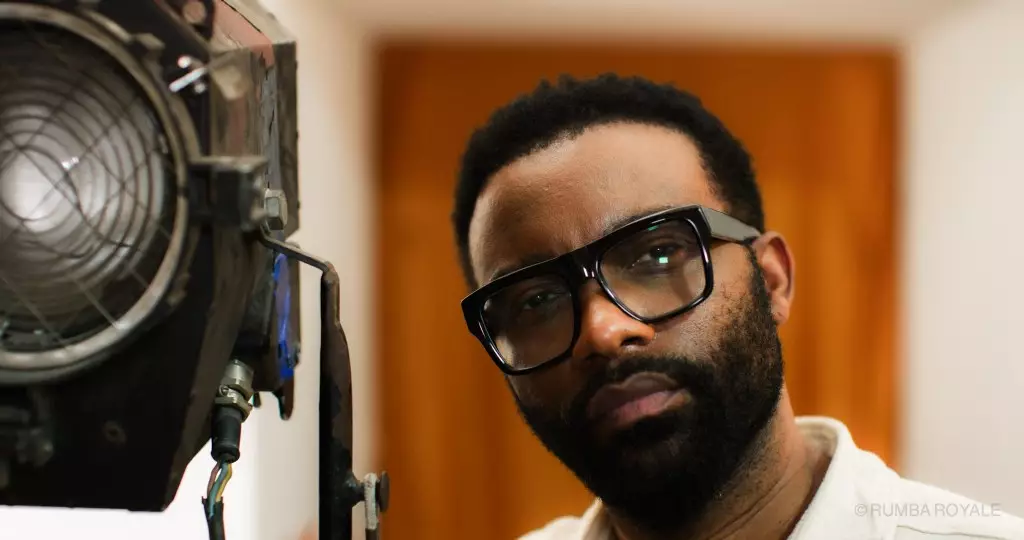In recent years, there has been a palpable renaissance of African cinema, but Congolese film, in particular, has struggled to gain a foothold on the global stage. With the announcement of “Rumba Royale,” starring the dynamic Fally Ipupa, this situation may finally be poised to change. The film is set to deliver not only a thrilling narrative but also showcase the rich culture of the Democratic Republic of Congo through its music and storytelling. This could mark a turning point for a country eager to share its art and history with a wider audience.
Fally Ipupa, often referred to as the “Prince of Rumba,” is no ordinary celebrity. His illustrious career stems from a deep-seated connection to Congolese rumba music, which has captivated audiences around the world. By intertwining his musical prowess with this cinematic endeavor, “Rumba Royale” has a unique opportunity to captivate both fans of Ipupa and new viewers alike.
A Deeper Look at the Historical Context
Set just before Congo’s independence from Belgium in 1960, “Rumba Royale” promises not only to deliver entertainment but also to enlighten audiences about the rich political backdrop of the era. Such a setting presents an opportunity to explore the complexities of identity, cultural heritage, and the struggle for autonomy. In a world where many historical narratives are dominated by Western perspectives, this film boldly asserts Congolese viewpoints, providing viewers with an authentic lens through which to understand the nation’s past.
Such narratives are essential because they foster deeper conversations about post-colonial identity. By telling local stories and elevating them to an international platform, the creators send a clear message: Congolese culture is both alive and worth celebrating.
The Significance of Pan-African Distribution
Pathé Touch Afrique’s acquisition of pan-African rights for “Rumba Royale” demonstrates a forward-thinking approach to film distribution. By planning to release the film across various linguistic markets—French, English, and Portuguese—the company not only diversifies its audience base but also amplifies the film’s socio-cultural relevance across the continent.
This inclusive model can empower local filmmakers and creators, inspiring a new generation to contribute their voices. With this shift in distribution, the film industry can become a vital forum for South-South cooperation in the arts, showcasing that African stories deserve a rightful place in global discourse.
Artistry and Ambition: A Collaborative Effort
The collaborative spirit behind “Rumba Royale” adds a layer of authenticity to the project. While Ipupa may be the star, the film’s success hinges on the collective efforts of a diverse cast and crew. Directors Yohane Dean Lengol and Hamed Mobasser articulate their vision as a “love letter” to both the Congo and African cinema. This dedication is multifaceted; it acknowledges local challenges while striving for universal appeal—a duality many international films often gloss over.
It’s refreshing to see a film that not only acknowledges but also embraces its roots, elevating local stories while aspiring for grandeur. The ambition is palpable, and such projects challenge the narrative that African films are lesser in terms of quality and vision.
Boosting National Pride and Visibility
Fally Ipupa’s assertion that “Rumba Royale” is one of the most ambitious projects to emerge from Congo is significant. This isn’t just about a film premiere; it’s about national pride and representation. The mere presence of high-profile films can spark a burgeoning interest in Congolese arts, encouraging investment and support for future projects.
Nations that invest in their cultural narratives often witness economic regeneration and a revival of local pride. Cinema, as a reflection of society, holds the power to illuminate the beauty, complexities, and aspirations of a nation. “Rumba Royale” could be a pivotal entry point into discussions about Congolese identity, which has long been overshadowed by more dominant narratives.
Challenges and Opportunities Ahead
Despite the excitement surrounding “Rumba Royale,” challenges remain. The film industry in Africa, including Congo, still faces issues such as funding, systemic barriers, and a lack of distribution channels. While Pathé Touch Afrique’s efforts are commendable, the industry as a whole needs sustainable structures that allow for continued creative output.
Moreover, audience reception will be a critical component of the film’s success. Will viewers connect with Congolese narratives steeped in local culture and historical context? Or will global perceptions stifle appreciation of what “Rumba Royale” brings to the table? The ongoing dialogues around African Cinema will be crucial as audiences navigate a blended cultural experience.
“Rumba Royale” isn’t just another entry in the film slate; it is a manifestation of ambition, art, culture, and potential—a cinematic awakening that could change how we view not just Congolese cinema but African storytelling as a whole.

